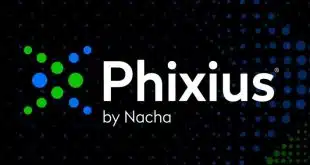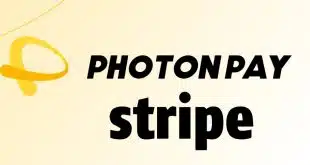The nation's largest processor of e-commerce transactions this week announced its commitment to a test involving PIN debit payments on the Internet. Chase Paymentech Solutions LLC, which processes for merchants that control more than half of all U.S. transactions on the Web, expects to sign between three and five sizable merchants for an online PIN debit pilot that relies on technology from Acculynk Inc., an Atlanta-based software company, says Mike Strada, manager for debit card product at the Dallas-based processing giant. The pilot so far has won commitments from two electronic funds transfer networks, Accel-Exchange and NYCE, with a third expected to be announced shortly, Acculynk officials say. Two other processors, Elavon and Merchant e-Solutions, have already agreed to recruit merchants (Digital Transactions News, March 5). The first merchant for the test, ShoppersChoice.com, was also announced this week. PIN debit, which is typically priced to merchants at lower rates than credit and signature-debit cards, appeals to online retailers seeking less expensive transaction alternatives. “There is significant interest [in online PIN debit] from merchants we have talked to,” Strada says. And PIN debit at the physical point of sale has proven to be increasingly popular with consumers. Still, while Chase Paymentech's decision to participate in the pilot seems to lend further impetus to the idea of enabling online PIN debit, Strada says the company is far from ready to introduce a commercial service for its client merchants. “All we'll commit to today is a pilot,” Strada tells Digital Transactions News. “This will be a controlled pilot. Our number-one goal is to do a proof of concept.” Strada, a veteran payments executive who once ran a regional EFT network when ATM cards were first enabled for purchases, says Chase Paymentech is looking to the pilot to demonstrate that consumers are willing to enter a PIN on a Web-site checkout page. “I've not seen a study that says, will you enter a PIN on the Internet for a debit card, so we just don't know” if consumers will adopt the payment type, he says. Nor is the processor committed exclusively to Acculynk's technology, which relies on a so-called floating PIN pad rendered on the consumer's PC screen. Consumers enter their PINs using mouse clicks. Strada says the company is also considering online PIN debit technology from three other companies, HomeATM, Verient, and Claerity. HomeATM, a Montreal-based engineering company, markets a peripheral PIN pad that consumers hook up to their computers. Verient Inc. relies on consumers' online-banking programs to authenticate buyers, generating one-time transaction codes consumers enter online. It has contracted with the NYCE network for a separate pilot (Digital Transactions News, Nov. 18, 2008). With Claerity, consumers enter their mobile-phone numbers at checkout and receive an authenticating transaction code on their phones via a text message. “We're in discussions with all of them, but because of development resources I can't run multiple pilots at the same time,” Strada says. Chase Paymentech decided to work with Acculynk's solution first because the company had won commitments from three EFT networks. “We will not process a transaction type that is not certified by the debit networks,” he says. A number of major issues have yet to be worked out, Strada adds. Some, but by no means all, of the issuers in the committed networks are likely to participate, which will limit the available card base. This is because the Acculynk solution lacks the magnetic-stripe data normally captured in a PIN debit transaction at the physical point of sale, including discretionary-field data many issuers consider crucial for security. “The networks aren't bringing their entire card bases in on day one,” notes Strada, who says the networks will have to work out whether to make online PIN debit a mandatory or optional service for their issuers. Also, the networks will have to set interchange rates carefully to win merchant participation, even in the pilot, Strada warns. While the networks will likely price online PIN debit at rates higher than point-of-sale PIN debit to win issuer participation, rates that approach signature-debit pricing too closely will make merchants balk, he says. Most retailers thes days, he adds, are scrambling to cut costs amid plunging sales. “There has to be a happy medium,” he says. “That's especially true in today's economy.” Despite its caution, Chase Paymentech has been pushing for Web-based PIN debit for some time. Some 16 months ago, Strada spearheaded a meeting at the headquarters of client Costco Wholesale Corp. at which solution providers, including HomeATM and a predecessor company to Acculynk, made presentations in hopes of moving forward on a pilot (Digital Transactions News, Nov. 21, 2007). A souring economy and other factors put those plans on hold until recently.
Check Also
Stripe’s Latest Venture Is a Partnership With Hong Kong’s PhotonPay
Technology from Stripe Inc. will support transactions for PhotonPay, a Hong Kong-based fintech processing online …




